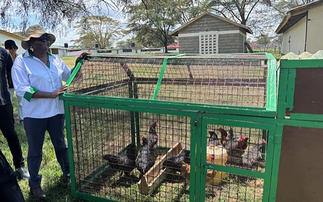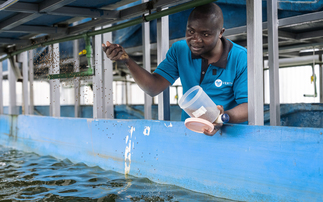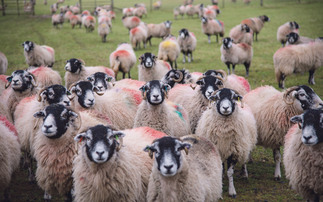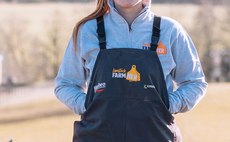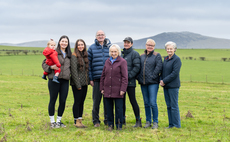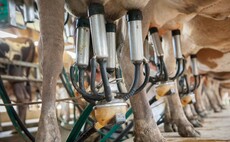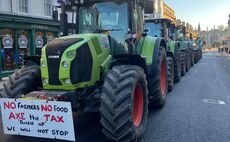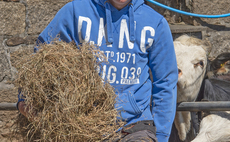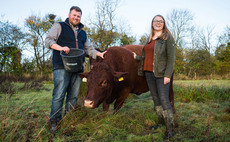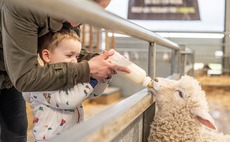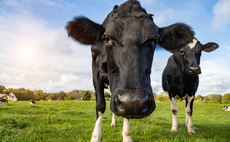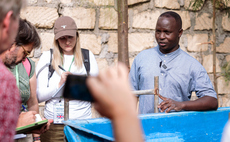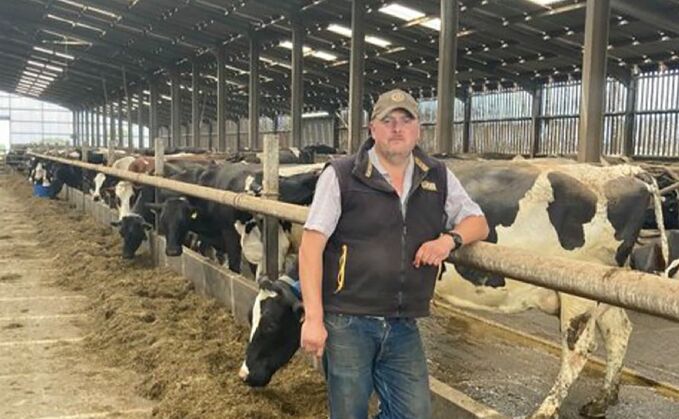
A dairy farmer in Pembrokeshire, whose herd has gone down with bovine TB (bTB) after five years being clear, has criticised the Welsh Government for ‘not caring' and 'burying their heads in the sand'.��
Fourth-generation dairy farmer Steve Evans milks a 460-480 milking herd outside Haverfordwest. Last week he had 30 cows declared as reactors, which will be culled, and 47 inconclusive reactors (IRs). He said after blood tests, he was 'fully expecting all IRs' to leave the herd.
Tb valuation day! Heavily in calf cows that are destined for slaughter due to tb.
— Steve Evans (@Evsthetractor)
Mr Evans said the majority of the reactors were in-calf and estimated that over the next 12 months, this bTB breakdown could cost his business more than £250,000.
"I was standing there thinking that the Government has to move on this fast, this is completely out of hand. How can we go from a clear test in March to this?
"The only reason we tested is because a farmer three miles away had gone down," he said, adding that testing in November as planned could have been ‘absolutely catastrophic'.
Bovine Tuberculosis��
Mr Evans said he was fearful of the growing threat in Pembrokeshire, with six other farms going down in the ‘last 16 weeks', suggesting there should have been an opportunity for a targeted trap badger test cull.
He was extremely frustrated by England being able to use ‘all tools in the box', including targeted badger culling, but said whenever there was any mention of wildlife in Wales ‘the shutters come down'.
He added they had done everything within their power on biosecurity. Mr Evans said he would now have to ‘review everything on the farm' to mitigate the financial losses. "You end up spending more on rearing costs. Your workload increases but, because your income goes down, you have to let a staff member go. It is just a total disaster."
A Welsh Government spokesperson said��
"We are very aware of the challenge of TB��in cattle, and the distress it can cause for farmers across Wales. ��This is why we are determined to eradicate bovine��TB��in Wales as set out in the delivery plan which we published earlier this year. We are also providing ongoing support to farmer support and mental health networks.
"Since 2009 we have seen steady progress, with fewer affected herds and new incidents across Wales as a whole. It is also recognised that levels of��TB��in cattle continue to vary in different parts of Wales. This requires continued action by all involved - to both tackle the disease where it occurs, and to keep it out of herds.
"Our Programme for��Government��makes clear we will not cull badgers. However, there are ways farmers can limit the introduction of��TB��into their herds, through biosecurity. For example, measures may tackle��badger and cattle contact or reduce the risk of buying infected cattle. It is important to discuss such measures with your vet.
"We have also been clear��Government��cannot do this alone, and partnership working with our farmers and vets is crucial to reach our shared goal of a��TB-free Wales. The Minister regularly meets farmers, including at the upcoming Royal��Welsh��and summer shows."






